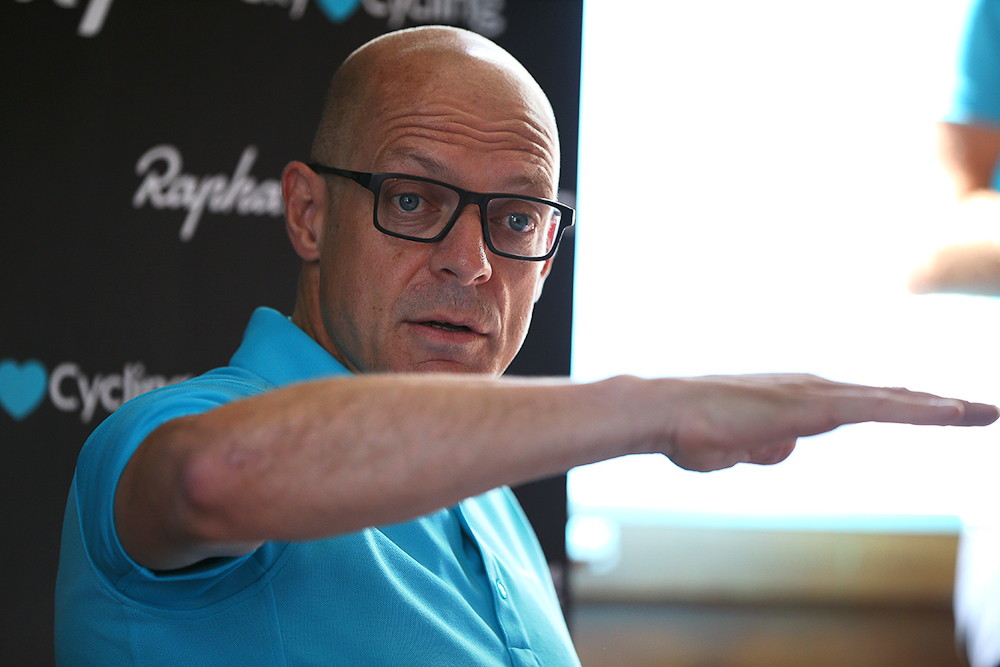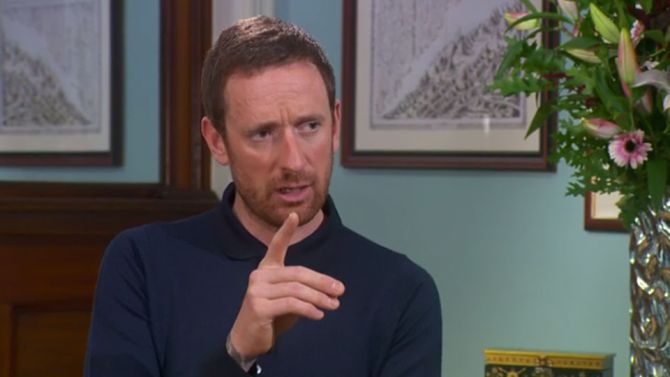WADA object to Team Sky's idea of making TUEs public
Agency says athletes should not be required to disclose personal medical details



Following the cyber attack that made public the confidential medical information of dozens of Olympic athletes, including Tour de France champions and Olympic medallists Bradley Wiggins and Chris Froome, Team Sky principal David Brailsford stated this week his intent to make the team's Therapeutic Use Exemptions (TUE) "transparent" by asking riders to voluntarily allow their medical information to be made public.
Tour de France winners Froome and Wiggins named in confirmed 'Fancy Bear' WADA hack
USADA and UKAD condemn Fancy Bear's hacking of athletes' medical documents
Bobridge, Trott latest targets of 'Fancy Bears' WADA hack
Skinner latest target in 'Fancy Bears' medical records hack
Millar says Wiggins' TUE drugs should be banned
Cancellara, Cummings, Fuglsang featured in latest Fancy Bears leak
Wiggins says he didn't take triamcinolone to gain an unfair advantage
Tom Dumoulin says Wiggins' TUE case stinks
The Sound of Silence: Brailsford, Sky and the questions still to be answered
Brailsford insists Team Sky is '100 per cent a clean operation'
The World Anti-Doping Agency (WADA) responded to this idea to Cyclingnews, firmly objecting to the disclosure of confidential medical data.
"It is a fundamental human right that personal medical information be kept confidential," the agency said in a statement. "Nobody would want such information disclosed, let alone for it to be debated publicly. Athletes should not be required to publish their TUE information, which may de facto disclose their disease or condition, nor should they be required to publicly defend their legitimate use of a TUE.
"The TUE program, as it stands, is a rigorous and necessary part of elite sport; which has overwhelming acceptance from athletes, physicians and all anti-doping stakeholders."
TUEs are granted to athletes with a specific medical need to use a drug that is normally banned in competition. Froome was granted an exemption to use an oral corticosteroid in 2013 and 2014 for respiratory infection, but it is Wiggins' TUEs for an unconventional treatment of allergies with the injectable triamcinolone acetonide (Kenacort) that raised questions for Team Sky.
Unlike the TUEs of Froome, Fabian Cancellara and Jack Bobridge, all of whom had made their medical conditions known before the data breach, the case of Wiggins was exacerbated by inconsistencies such as his criticism that the UCI was not enforcing its no-needle policy and claims in his autobiography that he has never taken an injection.
WADA support the continued use of TUEs as a way of allowing athletes with medical conditions to be allowed to treat their ailments while competing. "TUEs have been overwhelming deemed necessary by athletes, physicians and all anti-doping stakeholders," the agency stated.
The latest race content, interviews, features, reviews and expert buying guides, direct to your inbox!
"The notion of precluding athletes that suffer from illnesses and conditions such as diabetes, asthma, inflammatory bowel disease, rheumatological conditions, etc. from sport cannot be given serious consideration. It would undermine a fundamental value of sport that is the right of access and participation to sport and play, which has long been recognized by numerous international conventions."
Even without the attack by cyber hackers known as Fancy Bears and the subsequent public release of TUE data, the debate over the integrity of the application process has gone on for years. The UCI strengthened the process after Froome's TUE fast-tracking was made public in 2014, and now has an independent committee that reviews all applications.
Though WADA state that the "athletes’ TUEs are being debated publicly on the basis of partial, confidential, medical information", and state that TUEs are now granted "following a robust review process that is defined in the ISTUE (International Standard for Therapeutic Use Exemptions); and, evaluation by three physicians specialized in sports medicine and/or other relevant specialties", and that once granted TUEs "are subject to further evaluation by the relevant ADOs and WADA".

Laura Weislo has been with Cyclingnews since 2006 after making a switch from a career in science. As Managing Editor, she coordinates coverage for North American events and global news. As former elite-level road racer who dabbled in cyclo-cross and track, Laura has a passion for all three disciplines. When not working she likes to go camping and explore lesser traveled roads, paths and gravel tracks. Laura specialises in covering doping, anti-doping, UCI governance and performing data analysis.
